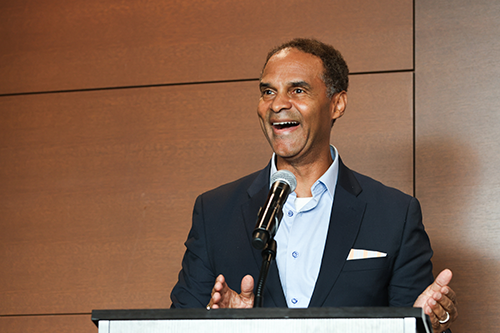
How Duke Faculty Are Investing in Themselves Through Coaching
When Alec Gallimore began his role as Duke’s provost last summer, he was often asked about his journey to the top of his field of advanced spacecraft propulsion and his transition to academic leadership. “I love learning,” he explained at a retreat for department and unit leaders. “Being in leadership roles is learning and growing.”

Throughout his career, Gallimore made a point of seeking out people who could guide his decision-making. “I’ve engaged coaches and mentors and helpers along the way,” he said, and encouraged his Duke colleagues to do the same.
Around 270 Duke faculty members have already tapped into a coaching resource from the Office for Faculty Advancement. Maria LaMonaca Wisdom, assistant vice provost for faculty advancement and adjunct associate professor of the practice in the Program in Education, is a professional certified coach (PCC) with the International Coaching Federation.
Faculty Perspectives on Coaching
Coaching is always strictly confidential, but these faculty members volunteered to share some of their experiences.
Taking Time to Think
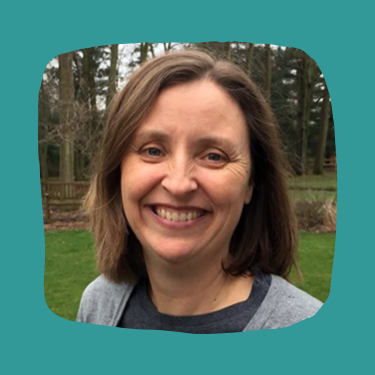
Katherine Brading is professor of philosophy and chair of her department. “Working with Maria gave me a chance to take a step back and think about what I want to invest in going forward,” she said. “We’re all swamped, we can’t do everything, so we have to make choices about what to focus on, and I wanted to reassess the choices I’m making and think about what I want to do next.
“What are my strengths? What do I love? What brings me the most joy amongst all the different things I do?,” Brading continued. “Is there a way to do more of those things, and reframe or rebalance the things I struggle with? Maria asked the difficult questions that helped me get to the bottom of things in a way that’s really hard (and maybe impossible) to do on your own, and she helped with concrete steps to move forward. She’s compassionate and insightful, and I made more progress than I was hoping for every single time we met.”
Gaining Clarity and Overcoming Barriers

“After every session with Maria, I gained more clarity about how to act on my career priorities, and identified the barriers that slowed my progress,” said Dan Vermeer, associate professor of the practice, Fuqua School of Business, and executive director of the Center for Energy, Development, and the Global Environment.
“She listened carefully, asked penetrating questions and provided just enough structure to motivate action,” he noted. “For example, working through an Odyssey plan [from “Designing Your Life” by Bill Burnett and Dave Evans] with Maria provided the insights to launch a new class and restart a stalled book project.”
Focusing on What’s Most Important
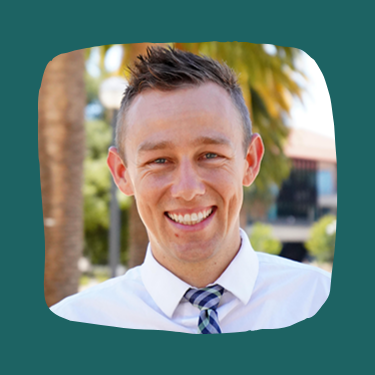
“Coaching helped provide the bigger picture and helped me step outside the pressure of academia to have a better appreciation and gratitude for each aspect of my job,” said John Hickey, assistant professor of biomedical engineering.
“While going to coaching takes time away from a busy faculty schedule, it was an incredibly productive use of time,” he emphasized. “I was able to prioritize better and focus on the most important things while also planning for uncertainty.”
Taking part in group coaching was a plus for Hickey. “It was reassuring to see that problems that I face, many colleagues face at all career levels. Similarly, across disparate challenges, there were often solutions that were common across individuals.”
Defining Goals That Inform Choices
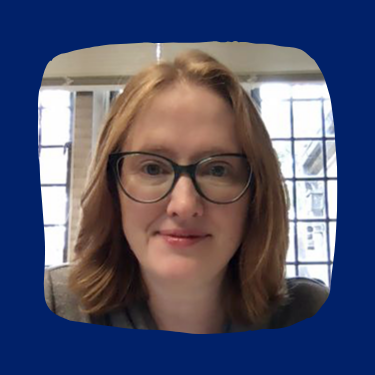
“Working with Maria Wisdom has been transformative for me,” said Lauren Donovan Ginsberg, associate professor of classical studies and theater studies.
“From group coaching to her workshops for midcareer faculty, Maria has helped me set healthier limits, advocate for myself better and lead my choices from my own goals,” Donovan added.
“Her activities and advice are always helpful. I am so glad she is at Duke.”
Planning How to Allocate Time
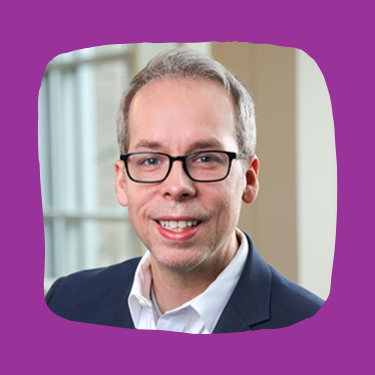
“When I first heard about it, I thought I was too busy to participate in coaching,” admitted Michael Murphy, clinical professor of law and supervising attorney, Start-Up Ventures Clinic.
“Now that I’ve had two semesters of coaching, I have a better sense of what kind of faculty member I am and want to be, and have gained the confidence that comes from knowing that I’m not alone in the challenges I have in my professional life,” he said.
“I have a better plan of where and how I want to spend my work time, and I spend it in more fulfilling ways. I sometimes wonder if I am too busy not to have participated in coaching.”
Three Ways to Get Involved
Coaching is a series of confidential, structured conversations that help people reflect on complex situations, navigate challenges, enhance self-awareness, set goals and exercise accountability for meeting those goals.
Faculty Group Coaching
Any faculty member can register to join a small, interdisciplinary group (four faculty total). Registration takes place in April for the fall semester and November for the spring semester. Each cycle constitutes a preliminary 1:1 meeting with the coach, followed by four 90-minute group sessions, spaced three weeks apart.
Participants benefit from multiple perspectives and the opportunity to meet other faculty dealing with similar professional issues.
In a Spring 2024 evaluation, 100% of respondents said the program met or exceeded their expectations and they would recommend it to other Duke faculty members.
Faculty or Academic Leader 1:1 Coaching
Chairs and unit leaders who would like 1:1 coaching support in their administrative roles may self-nominate via email to Maria Wisdom, which will remain confidential. Alternatively, they may nominate any faculty colleague for 1:1 coaching support for a critical research, teaching or service role.
Coaching Workshops
Last year, Faculty Advancement offered a two-part workshop for tenured associate professors, Navigating Your Way Forward as Midcareer Faculty. In addition, all faculty members were invited to register for a workshop called Integrating Coaching Into Your Mentoring. The 2024-25 schedule of Duke Faculty Advancement workshops will be announced shortly.